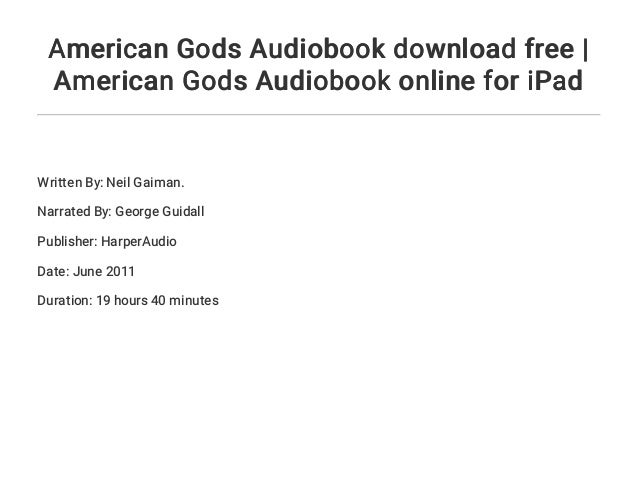

LK: I’m not an academic, and while the biographical aspects of the writer can be interesting, I don’t think that they are always relevant to a deeper appreciation of a book. LK: Who is the Nameless God? Neil said all would be revealed in the sequel-but I’m not holding my breath! And of course-what happened next to Shadow? We’ve had two short stories that are “further adventures” but I want to know a lot more!ĪR: The annotator’s job seems to combine elements of biographical and academic writing, in the spirit of a fireside chat. Neil and his assistant Mary Edgeberg spent a lot of time helping me wade through literal baskets-full of journals, notes, manuscripts, e-mails, and drawings to find relevant material.ĪR: Is there anything you still feel you don’t know about American Gods? His manuscripts also included questions for himself-where is this going? How can I accomplish x? The manuscripts gave real insights into his creative process, and I tried to capture many of those into notes that included unpublished material.

LK: It was fascinating to see how the story evolved and changed, with new characters, new events, as Neil wrote different drafts. I discovered that in detail in the course of annotating Gaiman’s Sandman and so fully expected to find a wealth of historical underpinnings here.ĪR: What were some of the rewards of going through Neil’s handwritten manuscripts? Neil-no mean Sherlockian himself-is especially adept at weaving reality into his fiction.


 0 kommentar(er)
0 kommentar(er)
